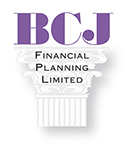Occupational Pensions / Auto Enrolment
How occupational pension schemes work
Every payday, a percentage of the employee’s pay is deducted automatically from their salary or wages and invested in the scheme. The employer also contributes to the scheme on the employee’s behalf as does the government in the form of tax relief.
Two types of scheme
In a ‘defined contribution scheme’, the employee’s retirement income is based on the contributions made, whereas in a defined benefit scheme, the employee’s pension income is based on his or her salary and length of service with the employer. Most occupational pension schemes are defined contribution schemes.
What happens if the employer goes out of business?
Whether the scheme is managed by insurance companies or by the employer, the pension funds are not available to creditors of the employer, so employees’ pension pots should not be affected if the employer goes bust. If the scheme is a trust-based scheme, employees will still get their pensions, although not as much because the scheme’s running costs will be paid out of members’ pension pots rather than by the employer.
Auto Enrolment
Under ‘Automatic enrolment’ rules, any employer (with at least one member of staff) must automatically enrol every employee between the age of 22 and State Pension age and earning in excess of £10,000 a year into a ‘Workplace pension scheme’.
Contribution costs
The minimum contribution for employers is 3% of the employee’s earnings, whilst employees are obliged to contribute a maximum of 5% of their earnings before tax.


